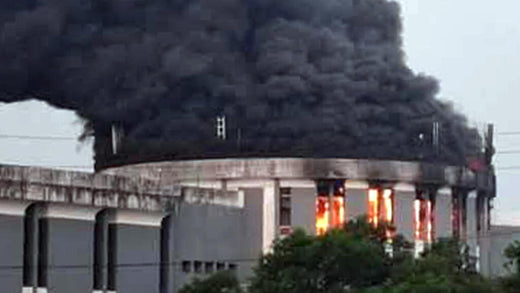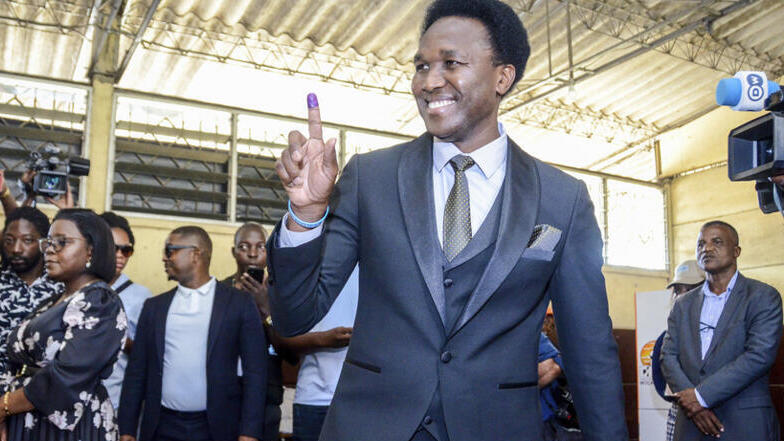
Gabon, constitution amended after referendum vote: Brice Oligui caught red-handed committing constitutional treason, popular trust violated?
A referendum emptied of its substance
When General Brice Oligui Nguema took power in Gabon in August 2023, he promised a transition to more transparent and institutionally respectful governance. However, recent changes to the Constitution, after its adoption by referendum, reveal a very different reality. Gabonese people voted for a specific text, but an altered version was promulgated, betraying popular trust.
Worrying post-referendum changes
Several notable changes have been identified between the text submitted to the referendum and that published in the Official Journal:
- Article 164: Weakening of institutional control
- Removal of references to Articles 165 and 166 (which strengthened the Constitutional Court's control over international agreements).
- Replaced by Articles 162 and 163, which focus on parliamentary procedures, thereby reducing the Court's role in validating treaties.
- Article 168: Ambiguity on constitutional revisions
- Amendment of the reference from Article 62 to Article 63 concerning prohibitions on constitutional revision.
- This change expands the periods during which changes to the Constitution can be made, opening the door to amendments in times of crisis.
- Article 28: Elimination of civic duties
- The reference to the duty to "respect and defend national heritage and public property" has been removed.
- All that remains is the obligation to contribute to the preservation of the environment, thus weakening citizen responsibility towards public infrastructure.
- Article 46: Extension of the powers of the interim president
- Removal of prohibitions preventing the interim president from dissolving parliament or exercising exceptional powers.
- This change significantly increases the influence of an interim president.
- Article 93: Restriction of the role of Congress
- Change in the reasons for the meeting of Congress, limiting its powers in matters of constitutional revisions and exceptional presidential communications.
- Weakening of parliamentary control over major decisions.
An unprecedented global precedent
To our knowledge, the Gabonese case is unique. Never before has a promulgated Constitution differed from the draft voted on by referendum. This situation sets a dangerous precedent, calling into question the credibility of democratic processes and popular sovereignty.
Major consequences and risks
- Authoritarian drift : we risk an increased concentration of powers in the hands of the executive.
- Weakening of constitutional control : there is a fear of a reduction in the role of the Constitutional Court on international commitments.
- Institutional destabilization : there is a risk of political and legal dispute due to the divergences between the text voted on and that promulgated.
The report highlights the importance of citizen and political mobilization to clarify the motivations behind these changes and demand more transparency in the constitutional process.
A betrayal that heralds crises
Beyond the betrayal of popular trust, the post-referendum changes to the Gabonese Constitution risk causing a profound institutional and political imbalance. By weakening the role of Parliament and limiting the mechanisms of control over the executive, these changes pave the way for an excessive concentration of power in the hands of the head of state. In the short term, this situation could allow for faster and more centralized governance, but at the cost of marginalizing countervailing powers and weakening the rule of law.
In the medium and long term, these alterations risk encouraging an authoritarian drift, where the country’s strategic decisions will be made without real democratic debate. The weakening of the role of Parliament and the Constitutional Court sets a worrying precedent that could compromise the separation of powers and make future institutional reforms even more opaque. Moreover, by removing the requirement for a referendum for certain international commitments, the regime gives itself the opportunity to conclude major agreements without consulting the people, which could lead to controversial decisions on sensitive issues such as the management of natural resources or Gabon’s strategic alliances.
Internationally, these changes could harm Gabon's image as a country in democratic transition, and cool foreign partners and investors, worried about legal instability and a lack of institutional transparency. Internally, the risk of popular protests and a massive rejection of institutions is very real, which could lead to a major political crisis and, potentially, demonstrations or increased tensions between the government and civil society.
And now ?
By amending the Constitution after the referendum, the Oligui Nguema regime is sending a clear message: the will of the people can be ignored in favor of the interests of the power in place. This betrayal risks increasing citizens' distrust of institutions, reinforcing political instability and compromising the country's development prospects.
It is imperative that the international community and Gabonese civil society actors mobilize to demand respect for democratic principles and the restoration of constitutional integrity. Without this, Gabon risks sinking further into authoritarianism, to the detriment of its people and its future.



Leave a comment
This site is protected by hCaptcha and the hCaptcha Privacy Policy and Terms of Service apply.